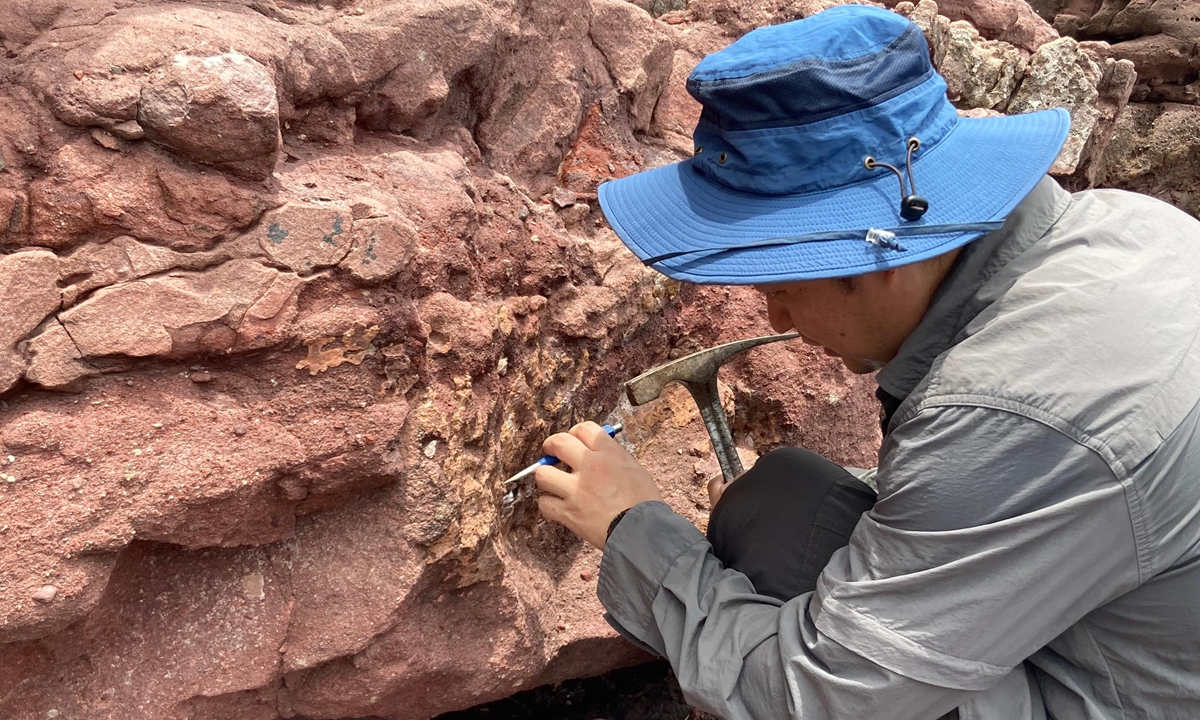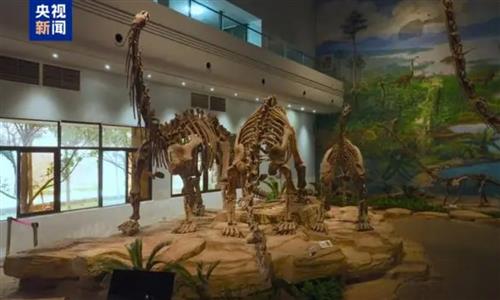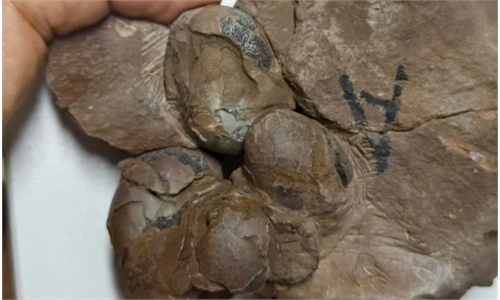ARTS / CULTURE & LEISURE
First dinosaur fossils discovered in HK to be exhibited on Friday

An expert from the CAS collects dinosaur fossils. Photo: The official website of the Hong Kong SAR
The first dinosaur fossils discovered in Hong Kong will be displayed at the Hong Kong Heritage Discovery Centre starting from Friday, according to a report from the website of the Hong Kong government on Wednesday.
A dedicated space is being built at the centre for experts to continue the cleaning and restoration of the fossils while showcasing samples already prepared. The local government has also made long-term plans to display the fossils, aiming to boost public interest and education in paleontology, said the report.
The Antiquities and Monuments Office will host a lecture at the Heritage Discovery Centre on Thursday afternoon, where experts from the Chinese Academy of Sciences (CAS) will discuss the latest dinosaur research in China. Attendees will be the first to view the dinosaur fossils beforethe fossilsofficially goe on display the following day.
The fossils, which date back to the Cretaceous period, about 66 million to 145 million years ago, were confirmed to belong to a large, elderly dinosaur, but the exact species has yet to be determined.
"The discovery is of great significance and provides new evidence for research on palaeoecology in Hong Kong," Secretary for Development Bernadette Linn Hon-ho said.
Thomas Stidham, an experienced paleontologist from the Institute of Vertebrate Paleontology and Paleoanthropology of the CAS, told the Global Times that "The discovery of a Cretaceous age dinosaur fossil in Hong Kong will help us better understand the geological and evolutionary history of southern China." Stidham also works at Austin College, the US as his main professorship.
"A large dinosaur in Hong Kong shows how much the region around the city has changed and how much more we have yet to discover about the city's history," he added.
The fossils were found onthe PortIsland in Hong Kong's northeastern waters, an area known for its rich red sedimentary rock formations. So far, the island has been completely closed off until further notice, with only authorized experts and relevant personnel granted entry. The marine police will patrol the surrounding waters.
In March 2024, the Antiquities and Monuments Office received reports of potential vertebrate fossilss in the sedimentary rocks of Tsz Chau Island.
From June to August, experts from both Hong Kong and the CAS had begun collecting samples, later conducting detailed analyses, including bone tissue slicing and microscopic examination. These tests confirmed the fossils's age and that it belonged to a vertebrate.
Both parties will continue to search for more fossilss, clean and prepare relevant samples, and work with universities both domestically and abroad to conduct research.
The discovery also prompted the signing of a cooperation agreement between the Hong Kong government and the Institute of Vertebrate Palaeontology and Palaeoanthropology of the CAS. The agreement covers the study of paleontology, prehistoric ruins, and other related researches. Additionally, it will also facilitate the training of talent and the exchange of expertise in these fields. The joint project to research the newly found fossils is the first initiative under the new framework.
"The agreement strengthens Hong Kong's collaboration with the Chinese mainland, allowing us to advance archaeological research and talent development in paleontology," Linn said at the signing ceremony, adding that this research will help explore Hong Kong's lesser-known ancient past.
Global Times


